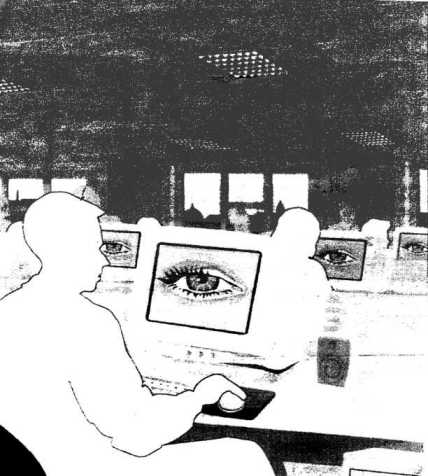People are voluntarily surrendering their privacy.
George Orwell got it wrong. In the developed world, it is not the state that has ushered in a "Big Brother" society but society itself. Every day, people are adopting new technologies that trade a small amount of their privacy for greater convenience and security : credit cards, smart cards in electronic tollbooths, customer loyalty cards, cash withdrawal machines … As for surveillance cameras, they have become so widely accepted that they have bred a genre of mass entertainment in the form of so-called reality TV.
Where the public wants security, the willingness to give up privacy is powerful. That bodes well for for the companies hoping to sell personal location technology to people who want to monitor the movements of their pets ands loved ones. Worries about child abduction, for example, mean that people are likely to welcome such devices.
But the loss of privacy may be less obvious where people trade privacy for convenience. For example, later this year, a smart card will be introduced to bring about cashless travel on London's underground, buses and train services. Few of the 20m who use the capital's underground will realise that the card will record their daily movements for billing purposes. Mobile-phone companies hold data on an individual's calls and movements. Shops hold details of purchases. Such companies frequently argue that personal data is secure and inviolable. Yet the police, tax authorities and security services can usually gain access to such data to pursue an investigation or prosecution.
However, some think that the toughest questions concern the minority who choose not to relinquish privacy for convenience or security, or those who do not have that choice - such as illegal immigrants. If basic services become inaccessible to people who choose not to (or cannot) carry a credit card, smart card or mobile telephone, say, there could be protests and other political pressure.
Such concern, however, will weigh little on the many who feel that they have nothing to hide. If the price of freedom is inconvenience and insecurity, the truth is that most people would welcome these sorts of Big Brother. Paradoxically, only government can protect civil liberties from Orwellian fate.
Adapted and abridged from The Economist, August 17th, 2002

George Orwell (1903-1950): an English writer, best known for his two post-war novels about and against totalitarianism, Animal Farm (1945) and Nineteen Eighty-Four (1949). "Big Brother is watching you" is a key phrase in Nineteen Eighty-Four.
1. Compréhension du texte (10 points)
Après avoir attentivement lu le texte ci-dessus, vous en ferez le compte rendu en FRANÇAIS et en 160 mots environ, à + ou - 10% près.
Vous indiquerez le nombre de mots utilisés.
Toute présentation sous forme de notes sera pénalisée.
2. Expression (10 points)
Answer the following question in ENGLISH.
To what extent is this drawing an illustration of George Orwell's key phrase 'Big Brother is watching you'?
Considering your own professional field, do you feel that an employee's liberties are threatened? Justify your opinion (250 words at least).
Le dictionnaire bilingue est autorisé.